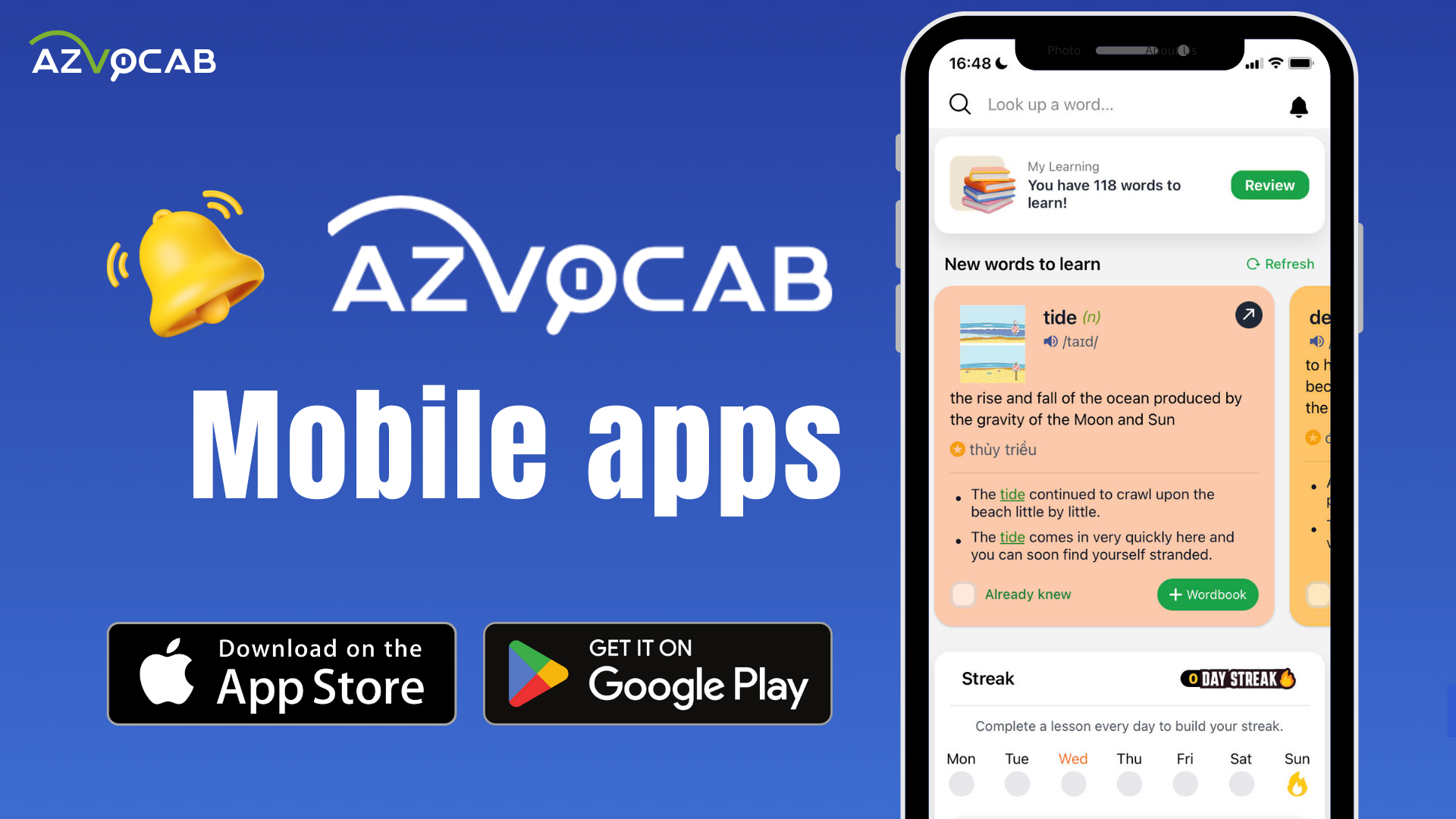Principles of Pedagogy in Vocabulary Learning and Its Application in azVocab
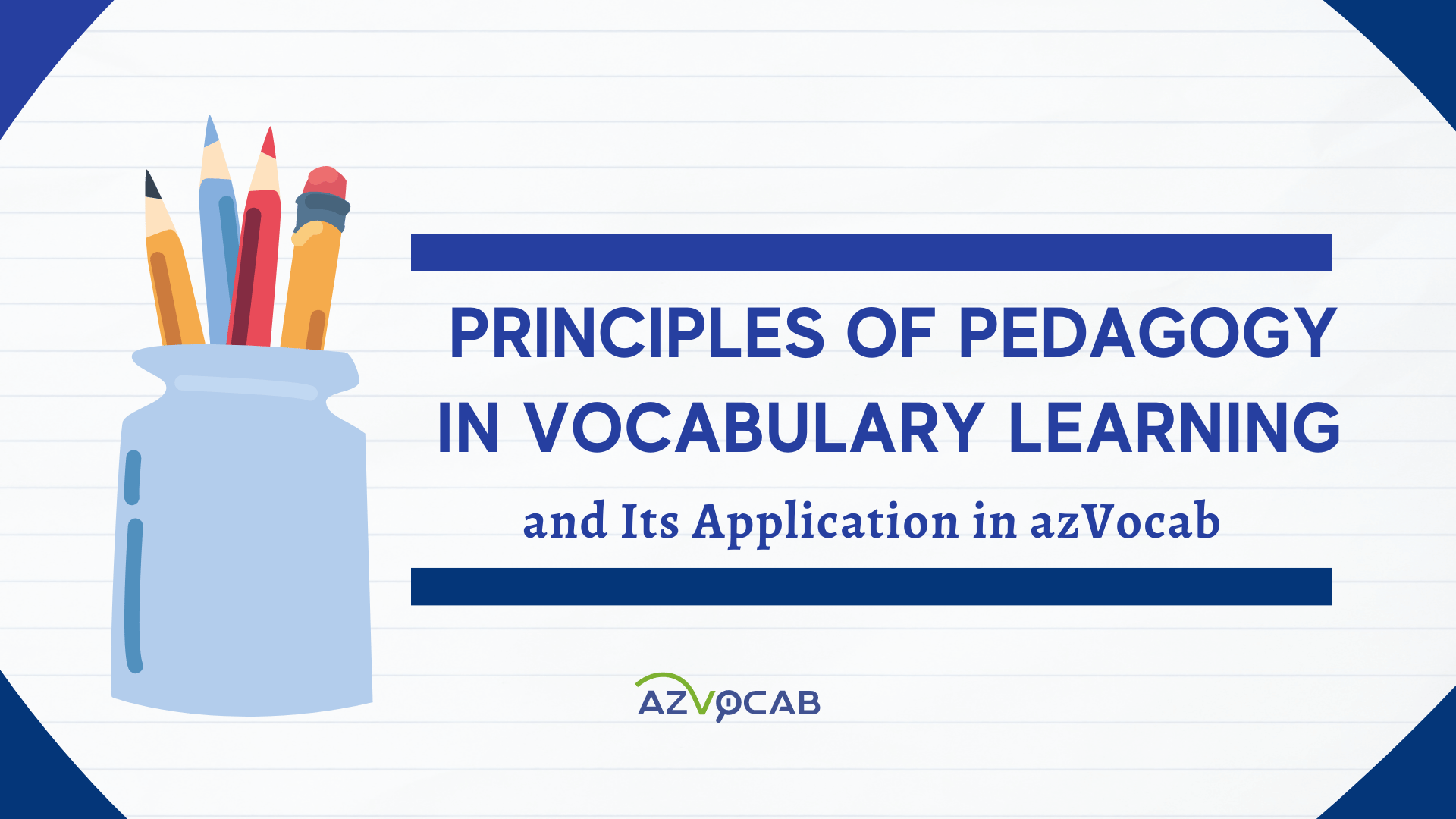
Principles of Pedagogy
The Vocabulary Learning Theory of Paul Nation
Ian Stephen Paul Nation is a linguist and globally recognized linguistics and language teaching scholar. He has introduced a theory on vocabulary learning that is currently applied in language teaching at many top universities worldwide, such as Cambridge and Oxford.
In Paul Nation’s research, he considers two factors when learning vocabulary: receptive and productive vocabulary knowledge in specific contexts. Receptive vocabulary knowledge involves understanding and remembering words through listening and reading, while productive vocabulary knowledge involves using acquired words in speaking and writing. In his research, Paul Nation synthesizes these three aspects of vocabulary knowledge that learners should possess: Form, Meaning, and Use. Form corresponds to learners’ knowledge of vocabulary, including their recognition of the word’s form and meaning, while Use corresponds to how learners employ vocabulary.

The Vocabulary Learning Theory of Paul Nation
The Vocabulary Knowledge Scale (VKS) by Wesche & Paribakht
The Wesche & Paribakht Vocabulary Knowledge Scale (VKS) is a measurement tool consisting of five levels, developed in 1996 by Wesche and Paribakht. This scale assesses an individual’s knowledge level of a word. Each level of the scale corresponds to what aspects of the word a learner is familiar with.
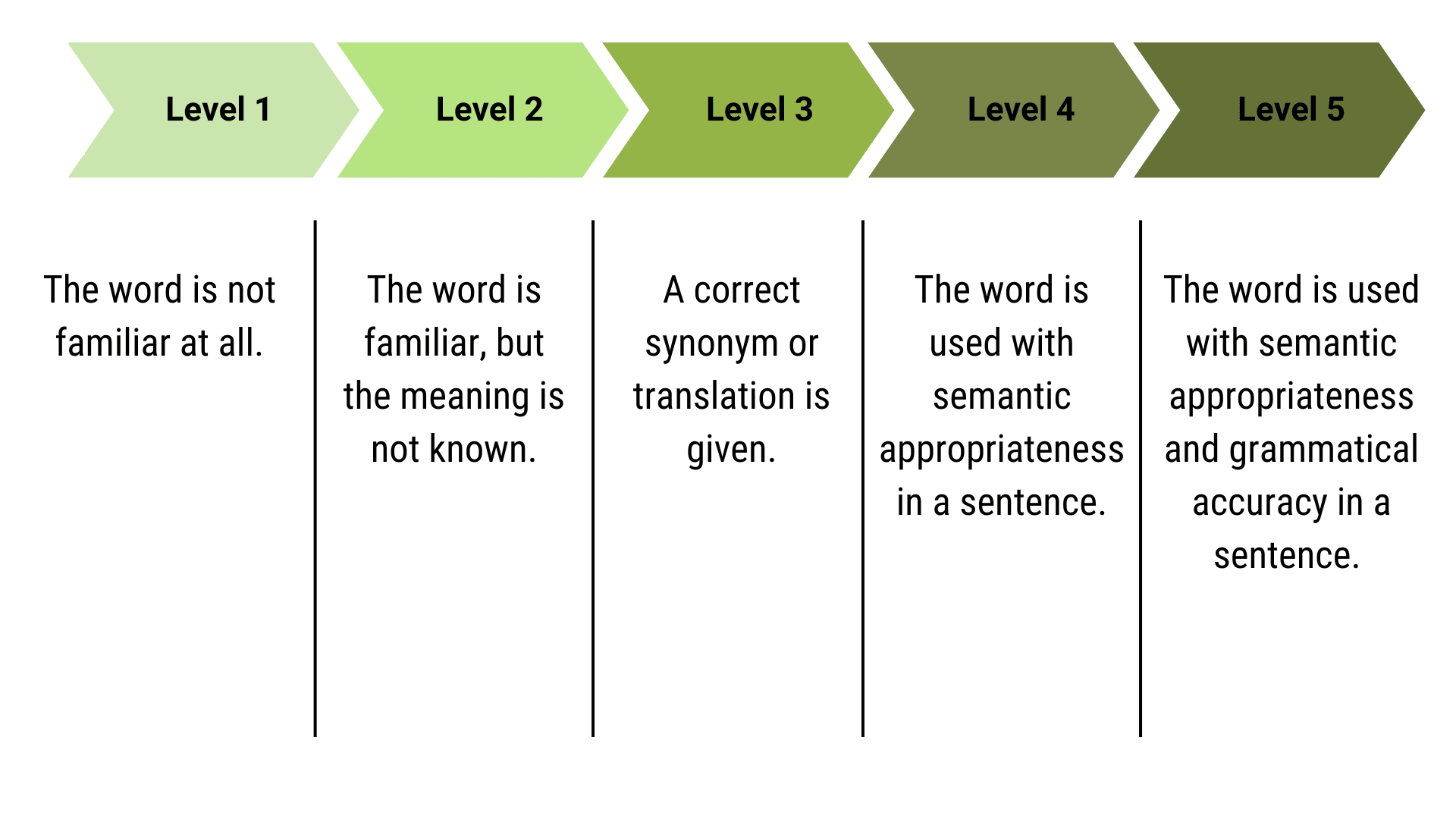
The Vocabulary Knowledge Scale (VKS)
How azVocab Applies Pedagogical Principles to Enhance Vocabulary Learning Effectiveness
azVocab has applied these two theories in designing questions and the order of presenting questions in each learning and review session to maximize vocabulary learning effectiveness.
Diverse Question Types
azVocab creates various questions to assess all aspects of a word, including pronunciation, spelling, and meaning. It goes beyond evaluating how the word is used in specific contexts and sentence construction. Initially, corresponding to level 1, the questions primarily aim to help users recognize and become familiar with words. These include questions on pronunciation, images, spelling, and meaning.

Pronunciation Question
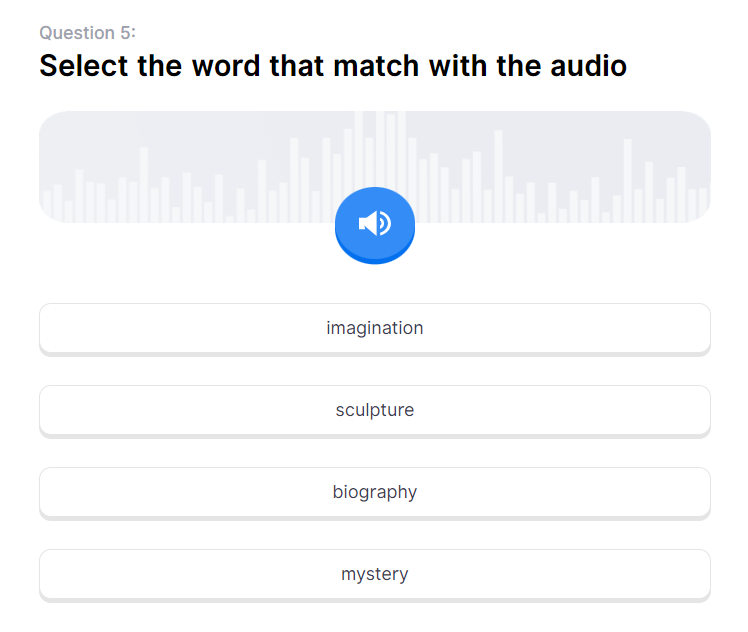
Audio Question
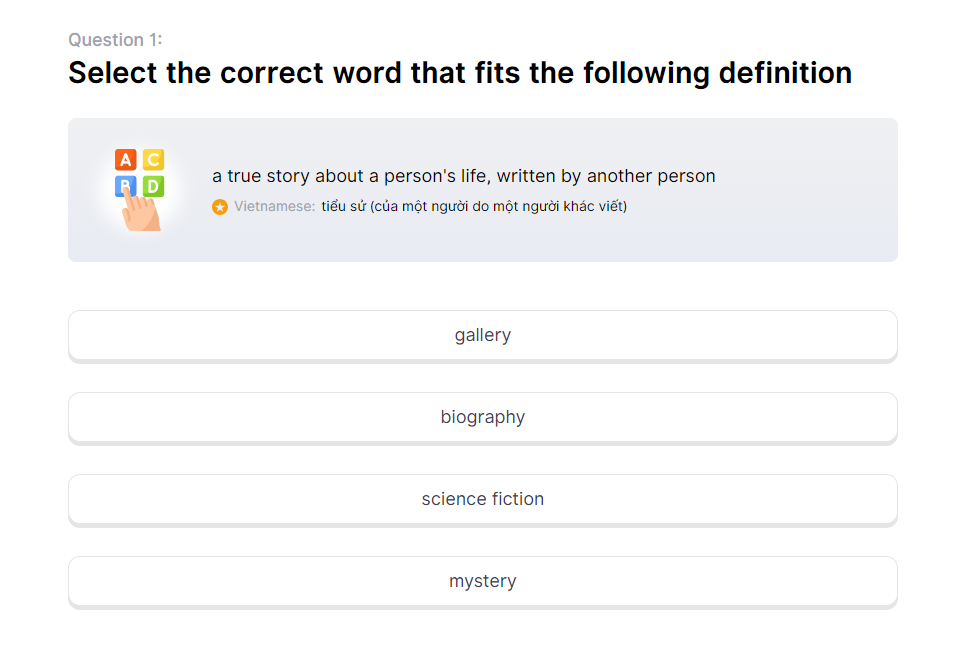
Definition Question

Image Question
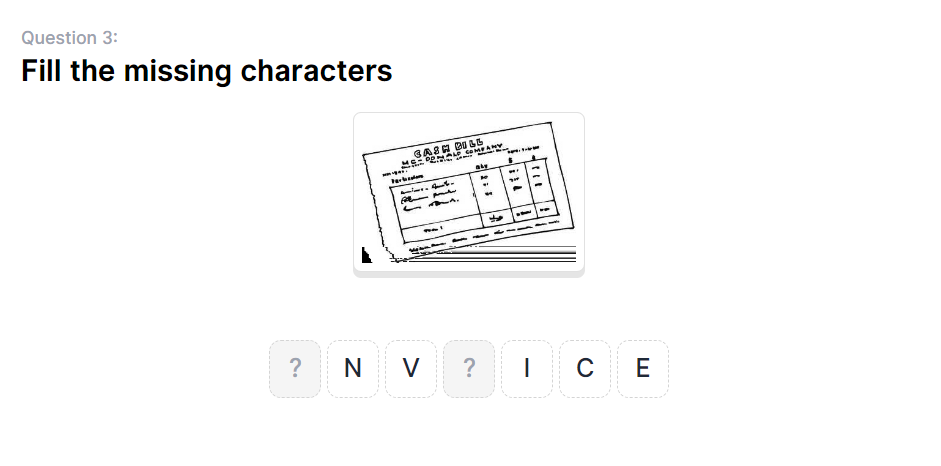
Spelling Question
Next, when users reach higher levels, the system will present various types of questions related to word usage, finding synonyms, antonyms, and related words. Each specific stage of vocabulary learning corresponds to suitable types of questions to optimize the user’s learning process. The questions on azVocab are presented in a logical sequence and tailored to each stage of vocabulary learning, ensuring that users will have a comprehensive understanding of a word, know how to use it in specific contexts and retain it in their memory.

Collocation Question

Matching Question

Synonym Question

Word Family Question
Application of Spaced Repetition Technique
The spaced repetition technique is one of the most effective methods to enhance the effectiveness of vocabulary learning for users. With an optimized algorithm, azVocab can determine the appropriate timing for users to review a previously learned vocabulary word before they forget it. This technique has been proven to be highly effective, with users being able to retain 80% of the vocabulary they have learned in the long term compared to other traditional learning methods (according to research by Jeffrey D. Karpicke and Henry Roediger in 2008 and by Paul Nation in 2011).

Description of Ebbinghaus’s Spaced Repetition Technique
To understand this method better and how azVocab applies it to its website, you can learn more in our article: Applying the Spaced Repetition Technique to Vocabulary Learning with azVocab.
Personalizing Data and the Vocabulary Learning Process
Each azVocab user has their own wordbook, and the data within it is unique and can be customized according to the user’s preferences and needs. Furthermore, users can choose the type of questions or question styles that align with their vocabulary learning goals. This allows users to actively engage in learning and create a comfortable learning environment.
Based on your learning and review history, azVocab has an algorithm to calculate your proficiency level with each word in your wordbook. Corresponding to the percentage of proficiency with words, the review questions will also adapt to match your progress. This helps you easily track your vocabulary learning journey while maintaining motivation to study.
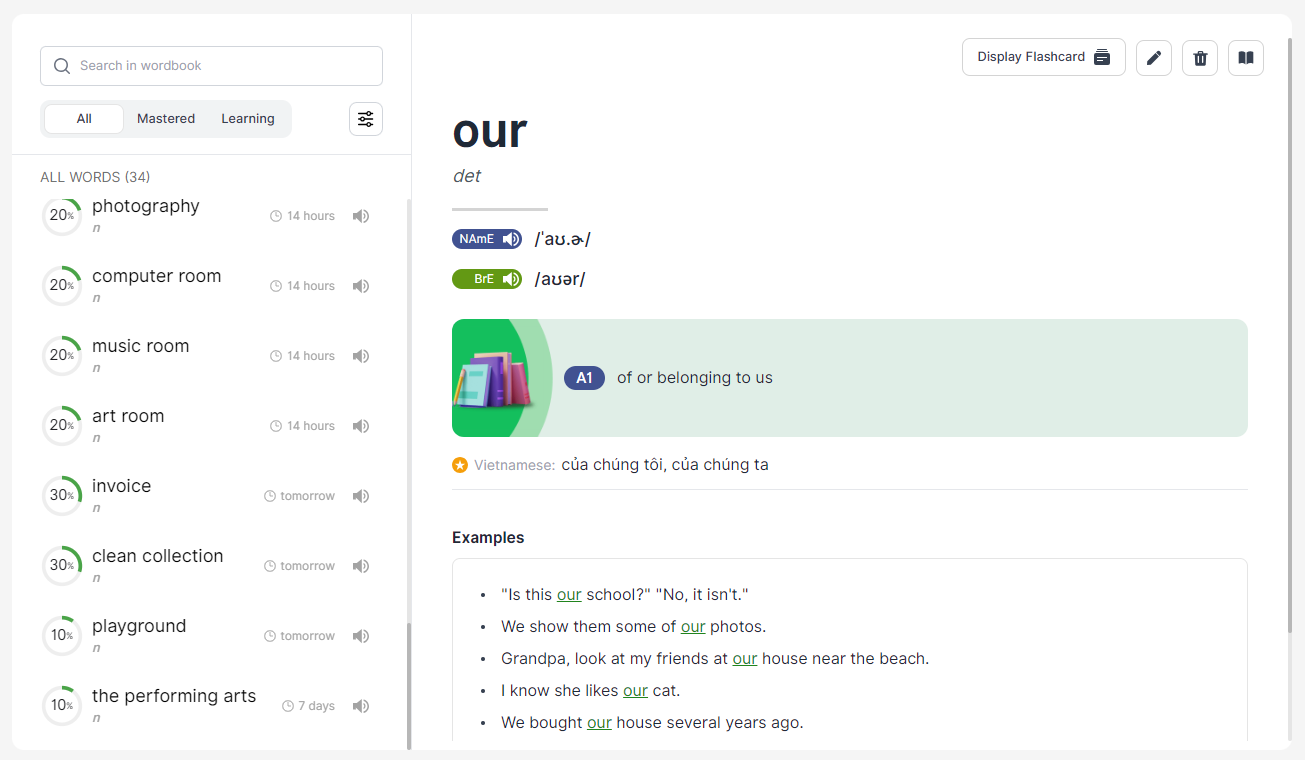
Vocabulary Proficiency on azVocab
Building Available Vocabulary Lists
When learning a foreign language, learners are often concerned about how many words they know, how many more words they need to become proficient in that language, or how many words they need to excel in an exam or comprehend a book. In his research, Paul Nation identified three factors to consider for learners to determine how many words they need to learn: the total number of words in the language, the number of words native speakers know, and the number of words needed to use the language effectively. Understanding this need, azVocab takes these three factors into account to create available vocabulary collections that serve different purposes for language learners. Whether you want to learn vocabulary for a specific exam, simply enhance your common vocabulary, or you’re studying a particular course with many new words, azVocab is confident in helping you address these challenges.

Available Vocabulary Collections
With a compiled and continuously updated vocabulary list, azVocab can help you save study time because you will know the number of words you already know and the number of words you need to learn. This allows you to create a vocabulary learning schedule that suits your time and proficiency level.
In addition to continuously updating scientific research results, azVocab relies on user experiences and feedback to constantly improve and enhance the effectiveness of the website, to provide users with the best experience. Therefore, azVocab greatly appreciates feedback from users to further refine our website.



